A service animal is an animal that is trained to perform life tasks for someone who has a physical difficulty. This person must have a disability that majorly affects and limits their ability to perform one or more major life tasks without assistance. The animals that help these people are commonly referred to as service animals. They also go by support animals, assistance animals, assist animals, or helper animals, depending on the country they are in.
In addition to service animals, there are actually three other types of service animals. There is a service animal, a psychiatric service animal, a therapy animal, and an emotional support animal. Furthermore, three of these require the animal to have special training depending on the type of service being provided. The fourth one just needs to be prescribed by a licensed mental health professional. Here are 8 of the most common animals that are used as one of these four service animals.
1. Dogs
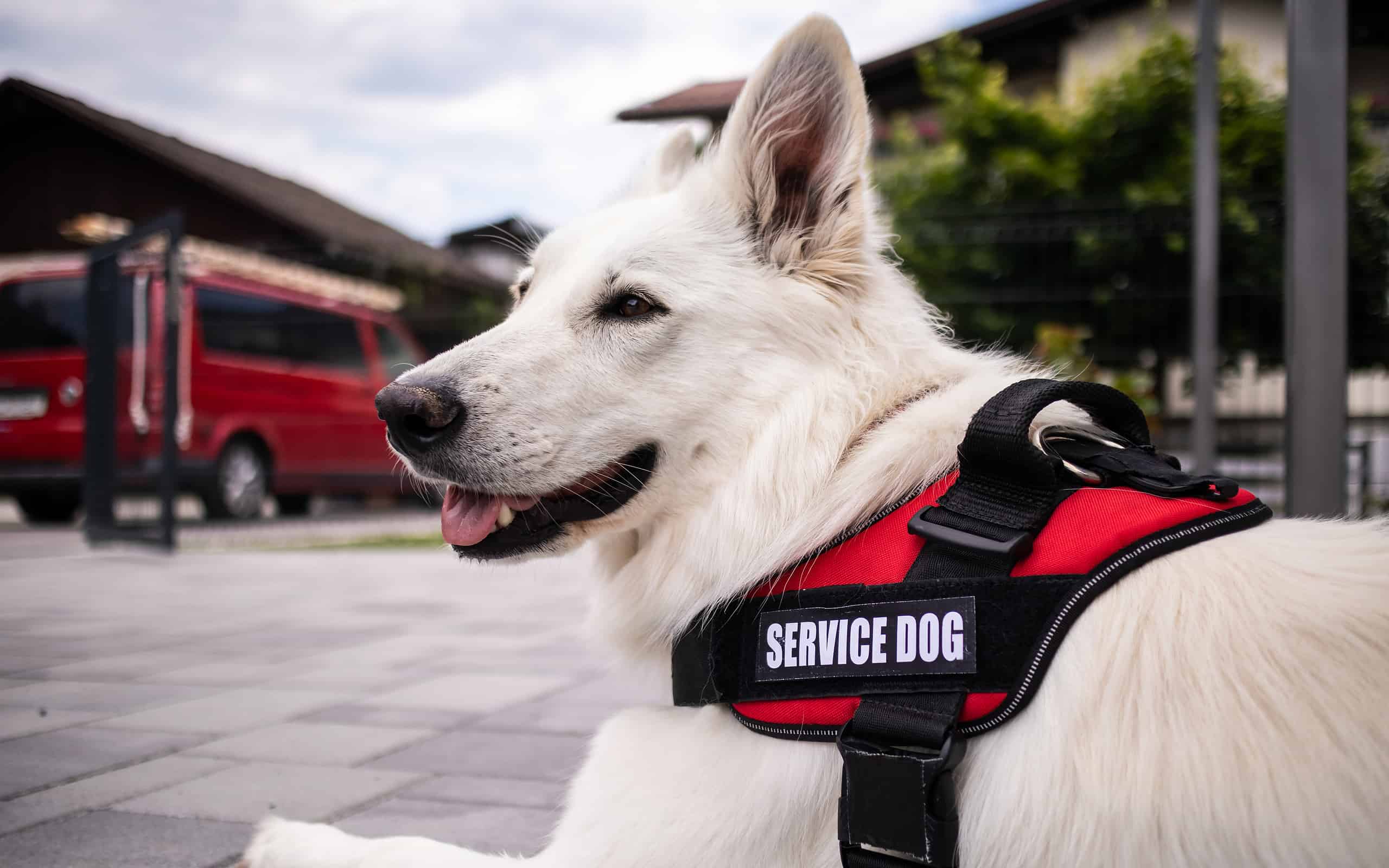
Dogs are the most common service animals.
©24K-Production/iStock via Getty Images
At the top of the list is, of course, dogs. When anyone thinks of a service animal, the first thing that comes to mind is a dog. A dog is one of the only animals that qualifies to be all four types of service animals. It also doesn’t matter what breed or size your dog is. As long as it can be properly trained for the service it will be providing, then it can become a service animal. Once the proper training is complete, owners must register their pets with the US Service Animal Register.
2. Miniature Horses
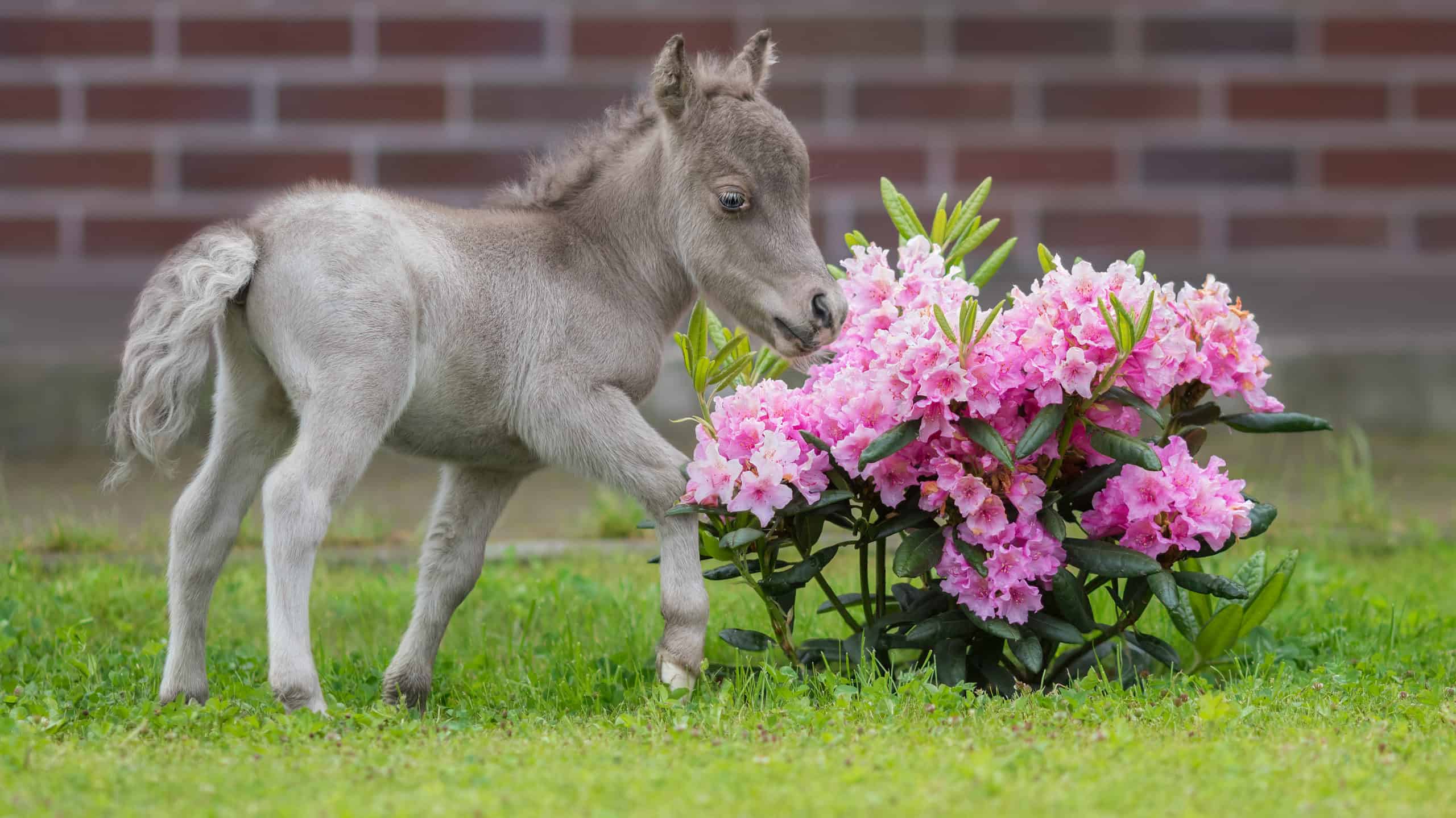
Mini horses are being used more and more as service animals.
©Abramova Kseniya/Shutterstock.com
A miniature horse is the only other animal that can qualify as a service animal. Just like a dog, it has to go through the proper training and get certified. However, size does matter for this animal. Only a miniature horse can be a service animal. Other-size horses can be used as therapy animals. Horses are so popular that there are many ranches that have horse therapy where people can come and get therapy from the horses.
3. Cats
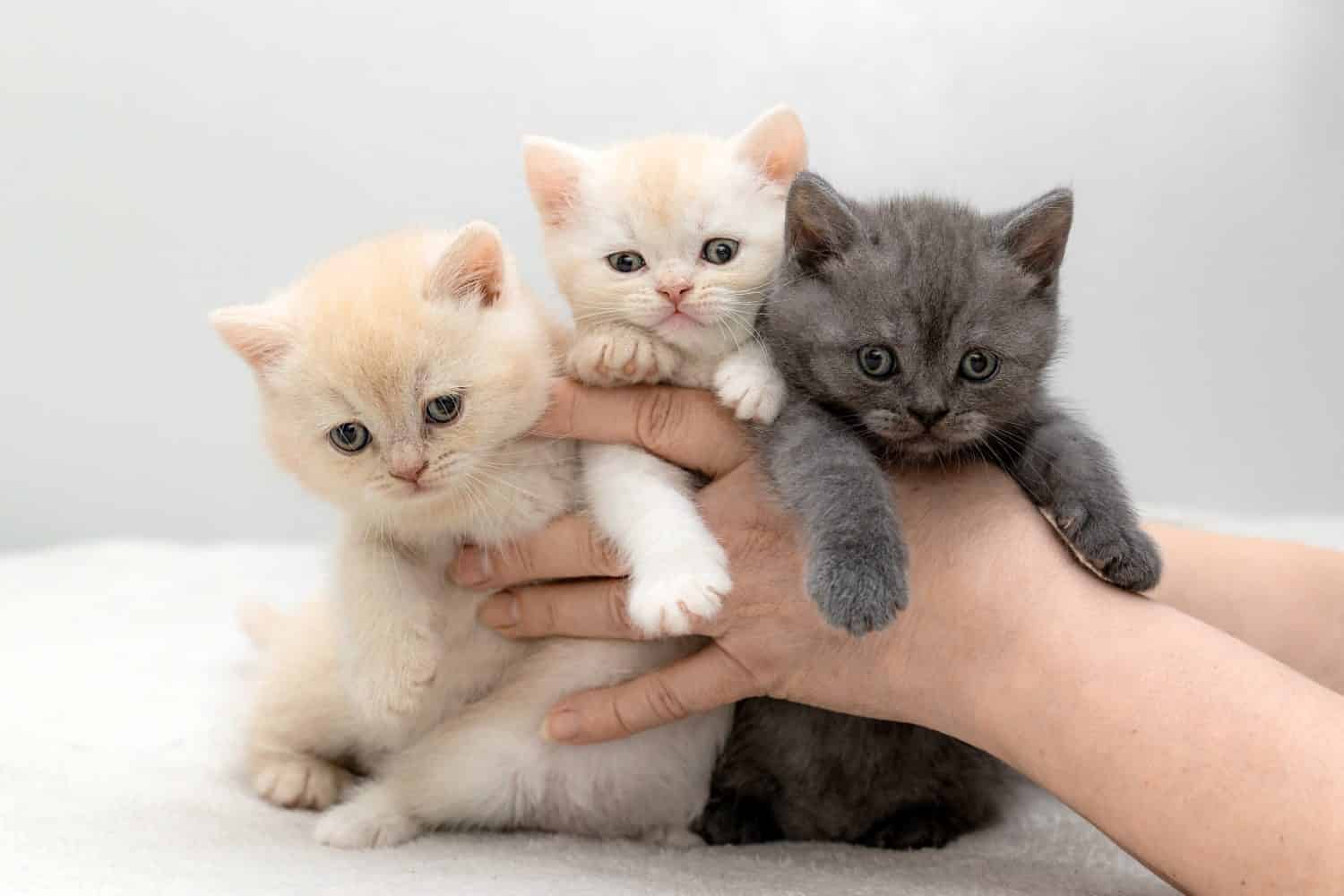
Cats are one of the most popular pets in the United States.
©g215/Shutterstock.com
These felines are a very common house pet. Although they cannot become service animals, they are great for emotional support animals and even therapy animals. Some research has even been done that talks about the benefits of petting cats. Nevertheless, even with them being among the more independent animals within this group, the right cat with the right person will make a perfect companion for emotional support.
4. Ferrets

Although they are quite energetic, ferrets make great emotional support animals.
©edierdel/Shutterstock.com
Ferrets don’t typically come to mind as an emotional support animal. But, with the rise of more and more people having them as pets, they have become a loving part of many families. Ferrets are quite energetic and lovable. They are often compared to mini dogs. They love going for walks on leashes and playing. If you have had them since they were a kit, they can grow up loving to be held and cuddled.
5. Pigs
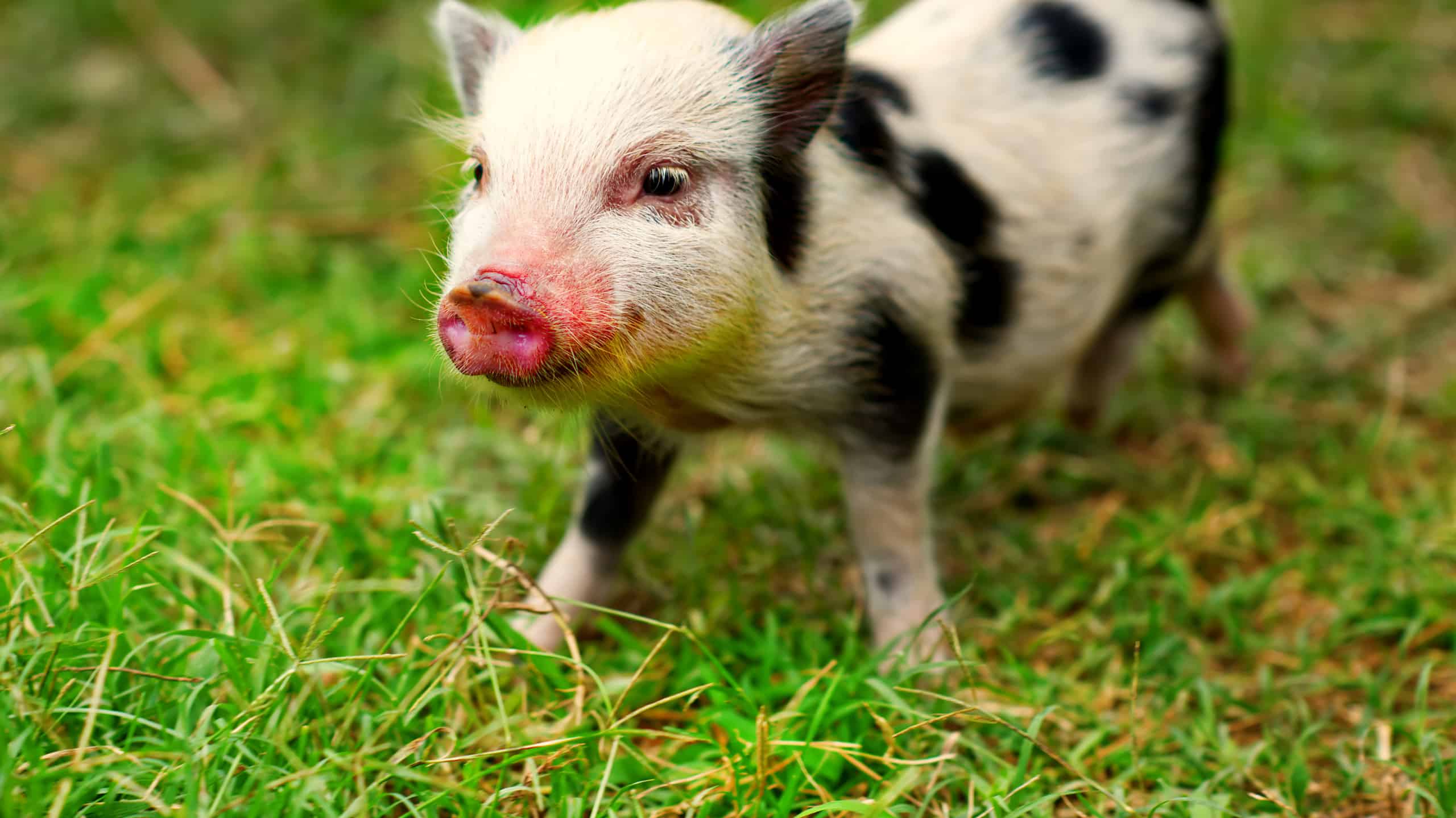
Not all pigs are messy, and micro pigs are becoming great household pets.
©Joe Herlong/Shutterstock.com
Pigs don’t just belong on farms anymore. Households all across America have begun embracing these micro pigs as the newest members of their families. With pigs being among some of the smartest animals, they can easily be trained to be therapy pigs or emotional support animals. San Francisco International Airport actually has the world’s first Airport Therapy Pig. Her name is Lilou, and she helps nervous passengers as they wait to board their plane.
6. Monkeys
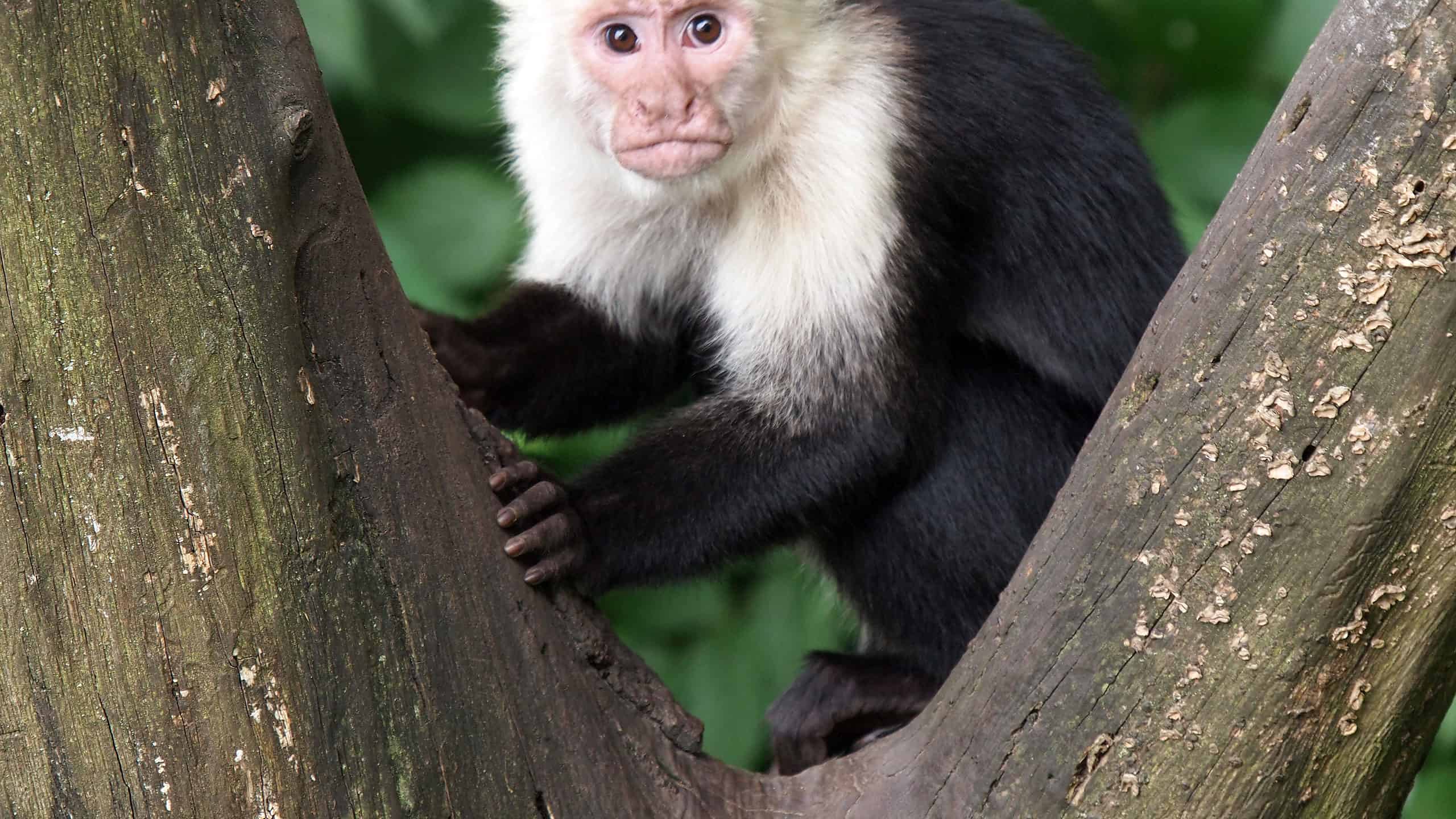
Capuchin monkeys are sometimes used and trained to help people with motor skills.
©Edwin Butter/Shutterstock.com
Monkeys are a tricky animal. Being an exotic and wild animal, it is rare for people to have them as pets. However, there are still quite a few people who do. Therefore, with the right training and upbringing, monkeys can be taught certain tasks and can help people with disabilities. For nearly 40 years, an organization named “Helping Hands: Monkey Helpers” did just that. They raised and trained these creatures to help individuals living with spinal cord injury or other mobility impairments.
7. Rabbits
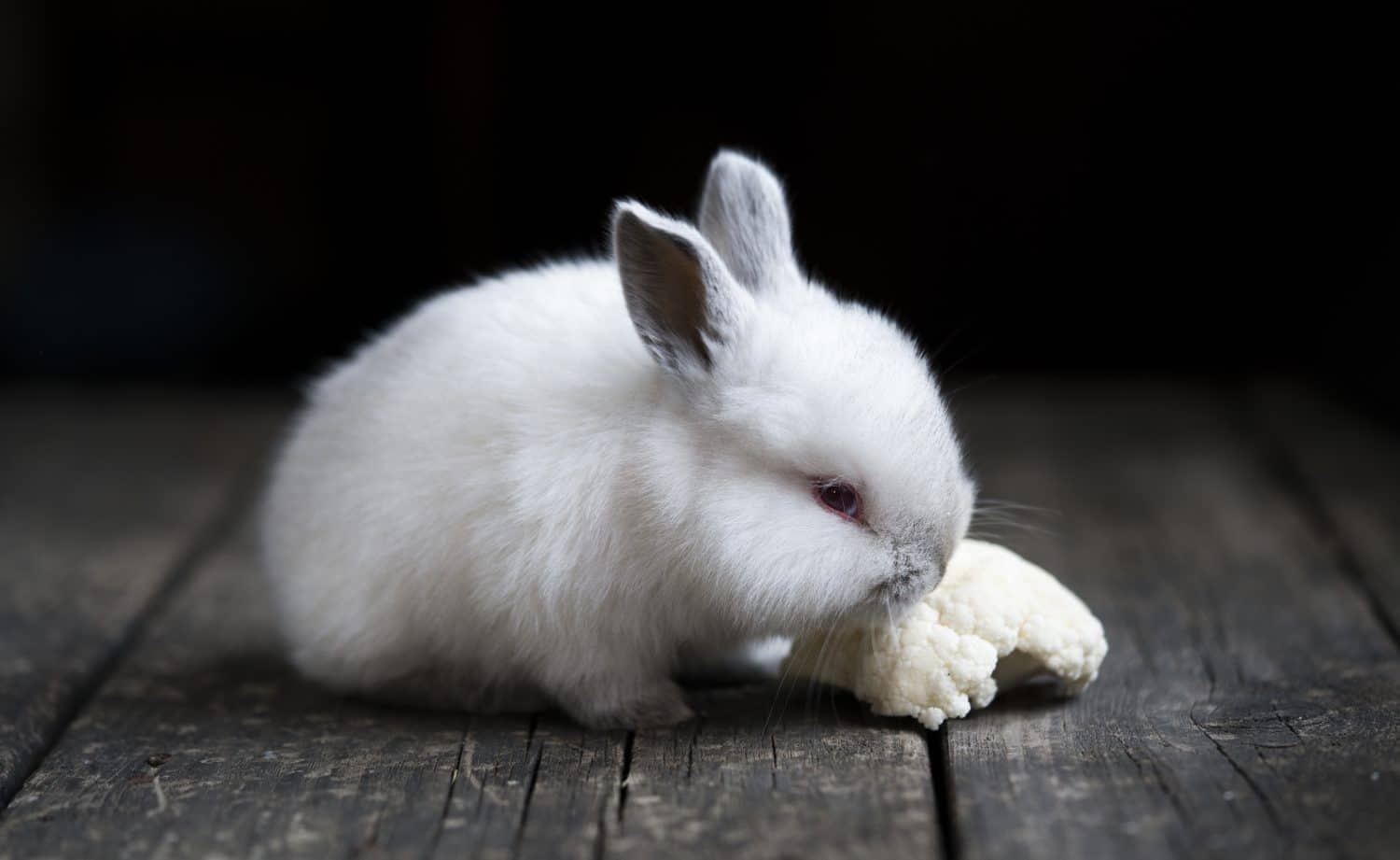
Being soft and cuddly make these animals great emotional support animals.
©Heavenman/Shutterstock.com
Rabbits can make excellent emotional support animals. Given their gentle demeanor, size, and fluffiness, these creatures were almost made for cuddling. They are easy to look after and develop a strong bond with their owners. Rabbits are also quiet and gentle, making them very reassuring for people struggling with anxiety, depression, or PTSD.
8. Hedgehogs
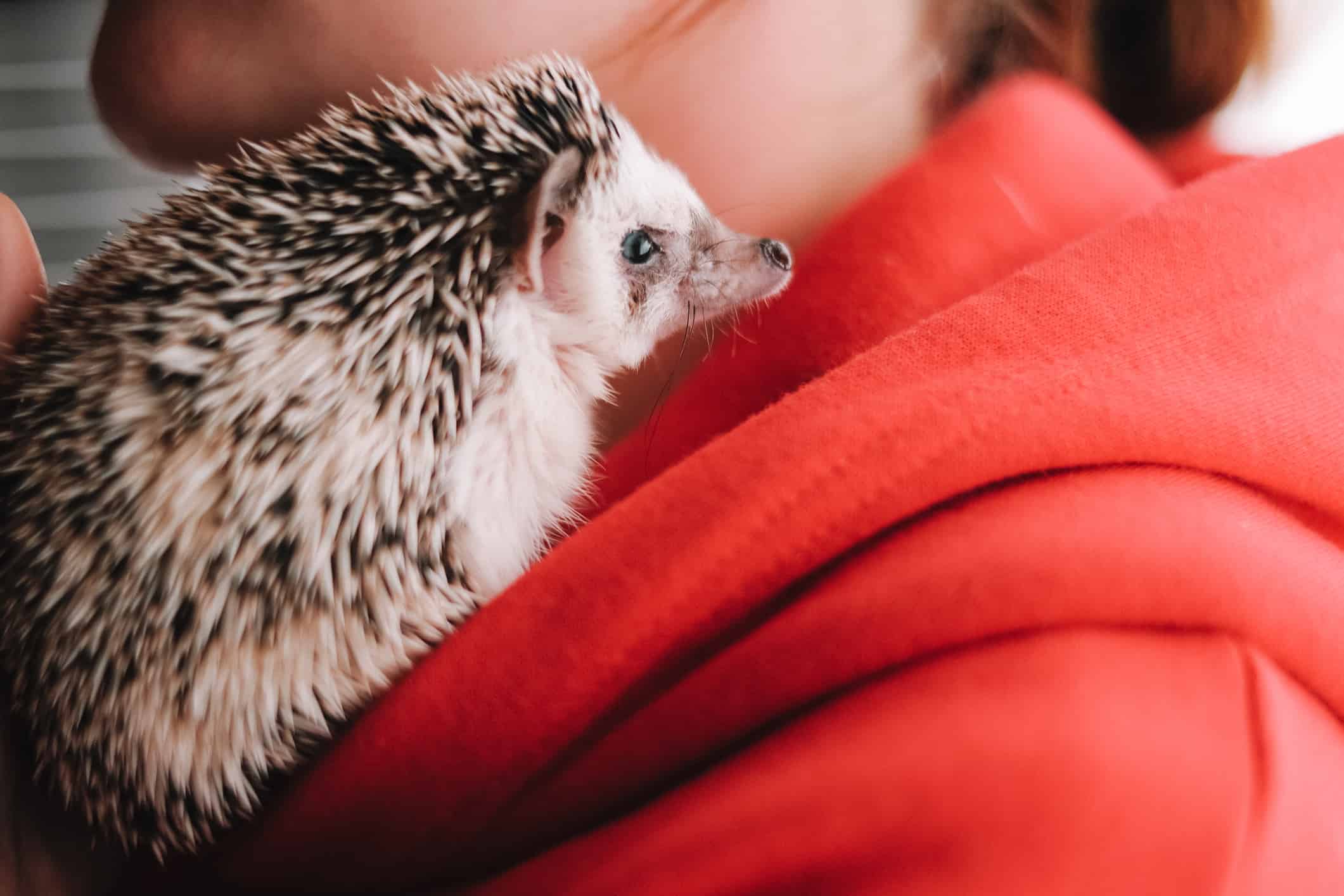
Although they are prickly, hedgehogs can be sweet and affectionate.
©yul38885 yul38885/iStock via Getty Images
Hedgehogs are, perhaps, one of the more off-the-cuff animals on this list. However, they make surprisingly good emotional support animals. Once your hedgehog becomes relaxed around you, they can become incredibly loving and gentle. Their prickles soften, and they will curl up right on top of you.
The photo featured at the top of this post is © SasaStock/Shutterstock.com
Thank you for reading! Have some feedback for us? Contact the AZ Animals editorial team.







